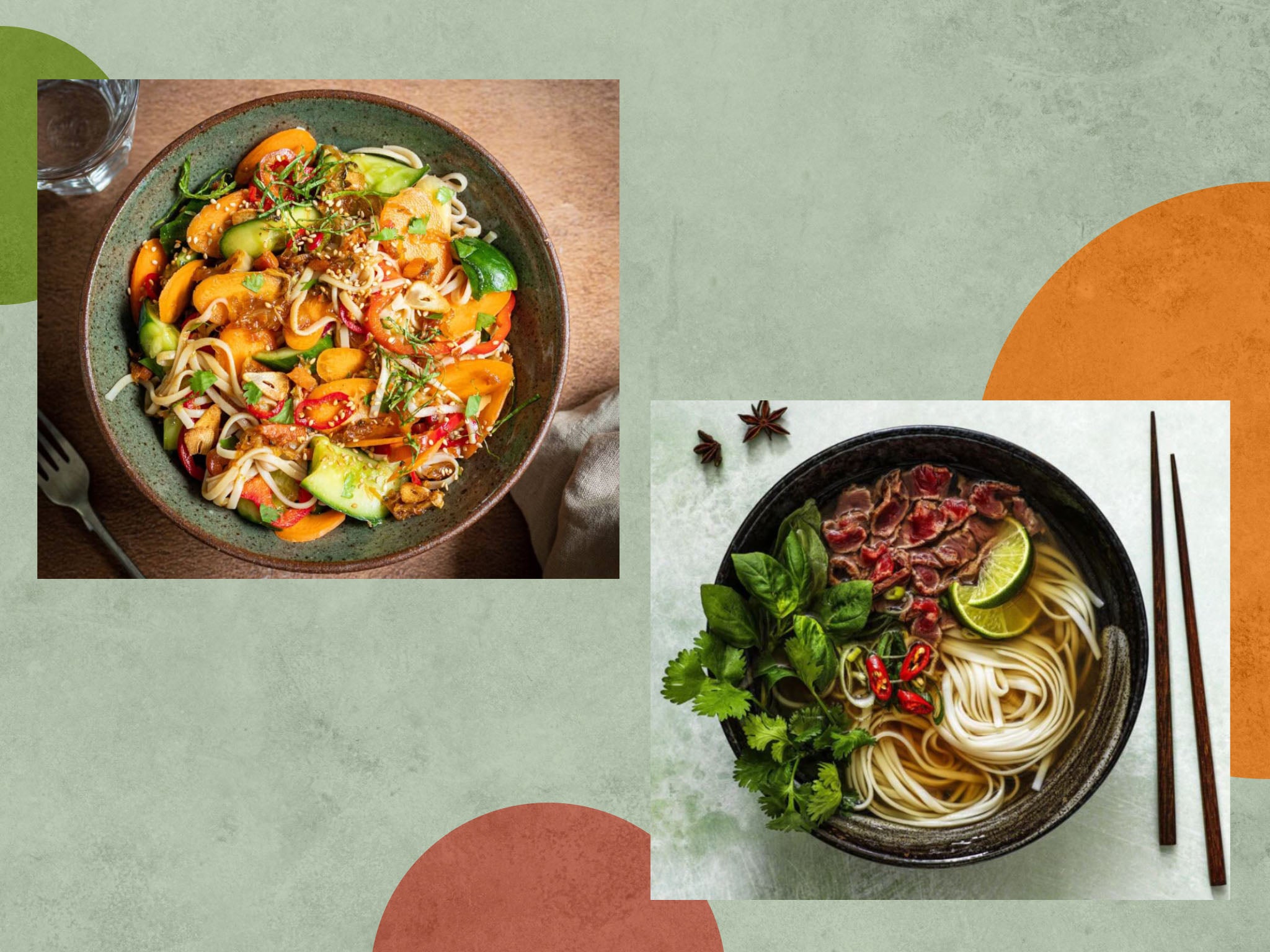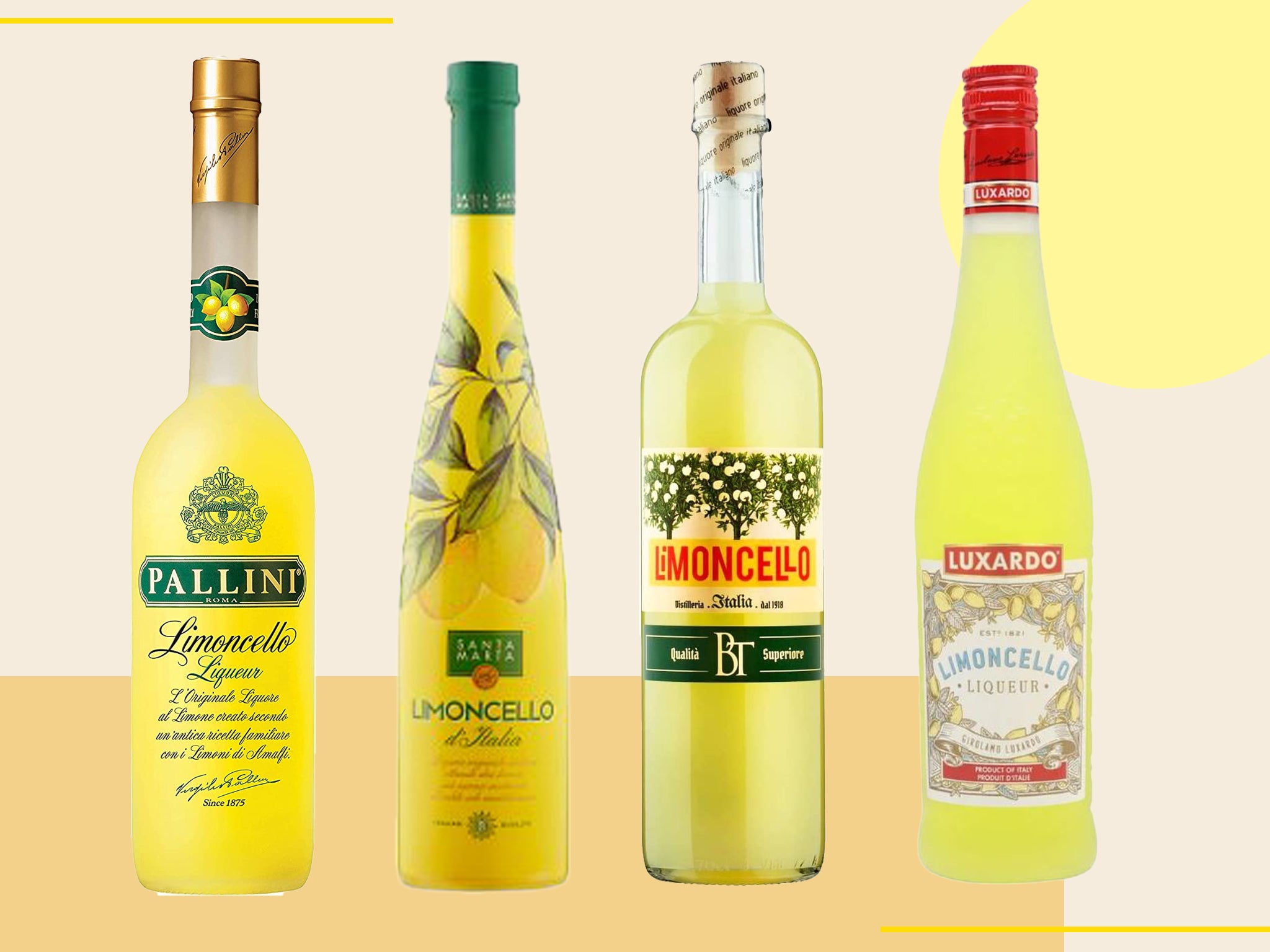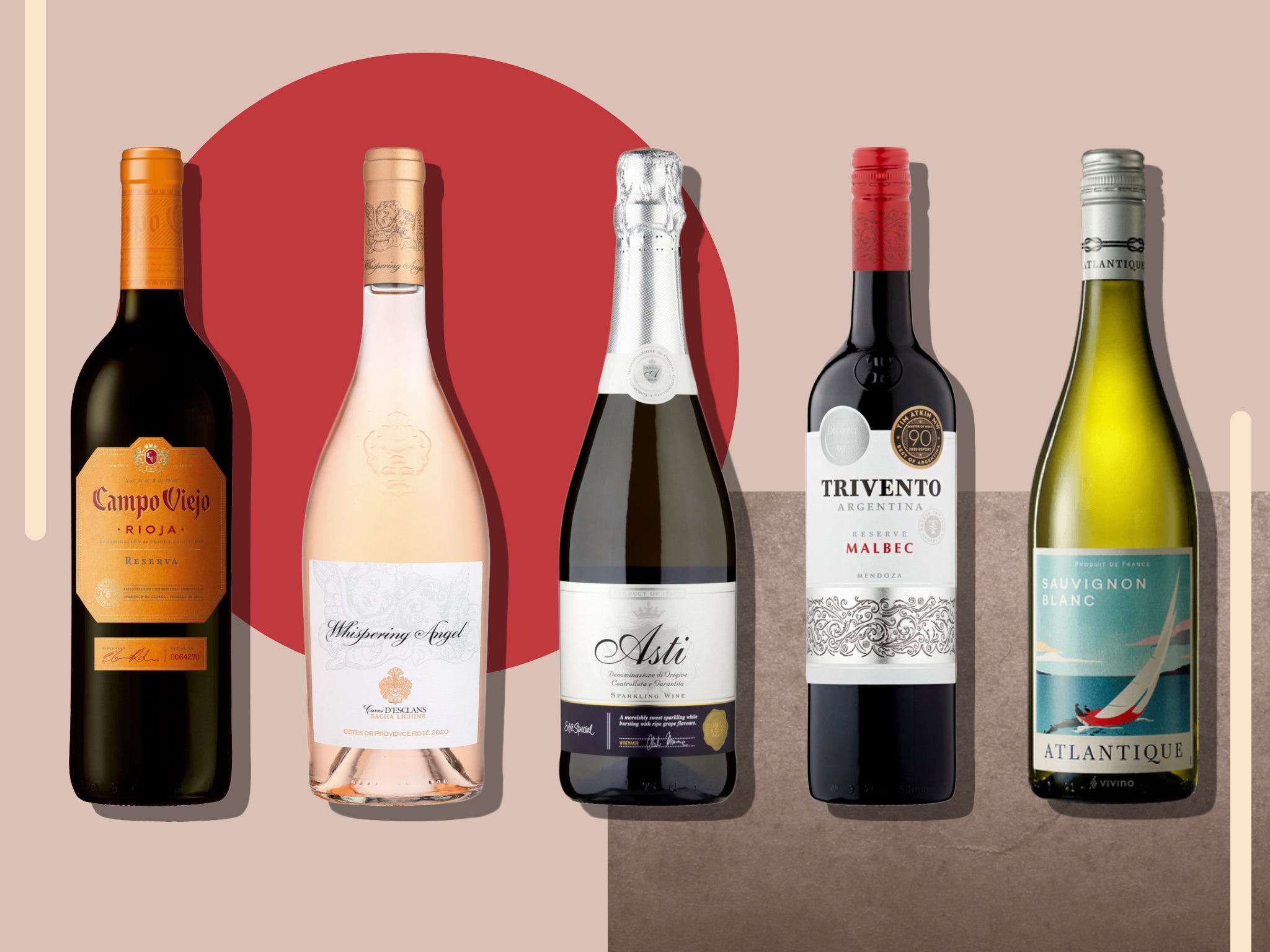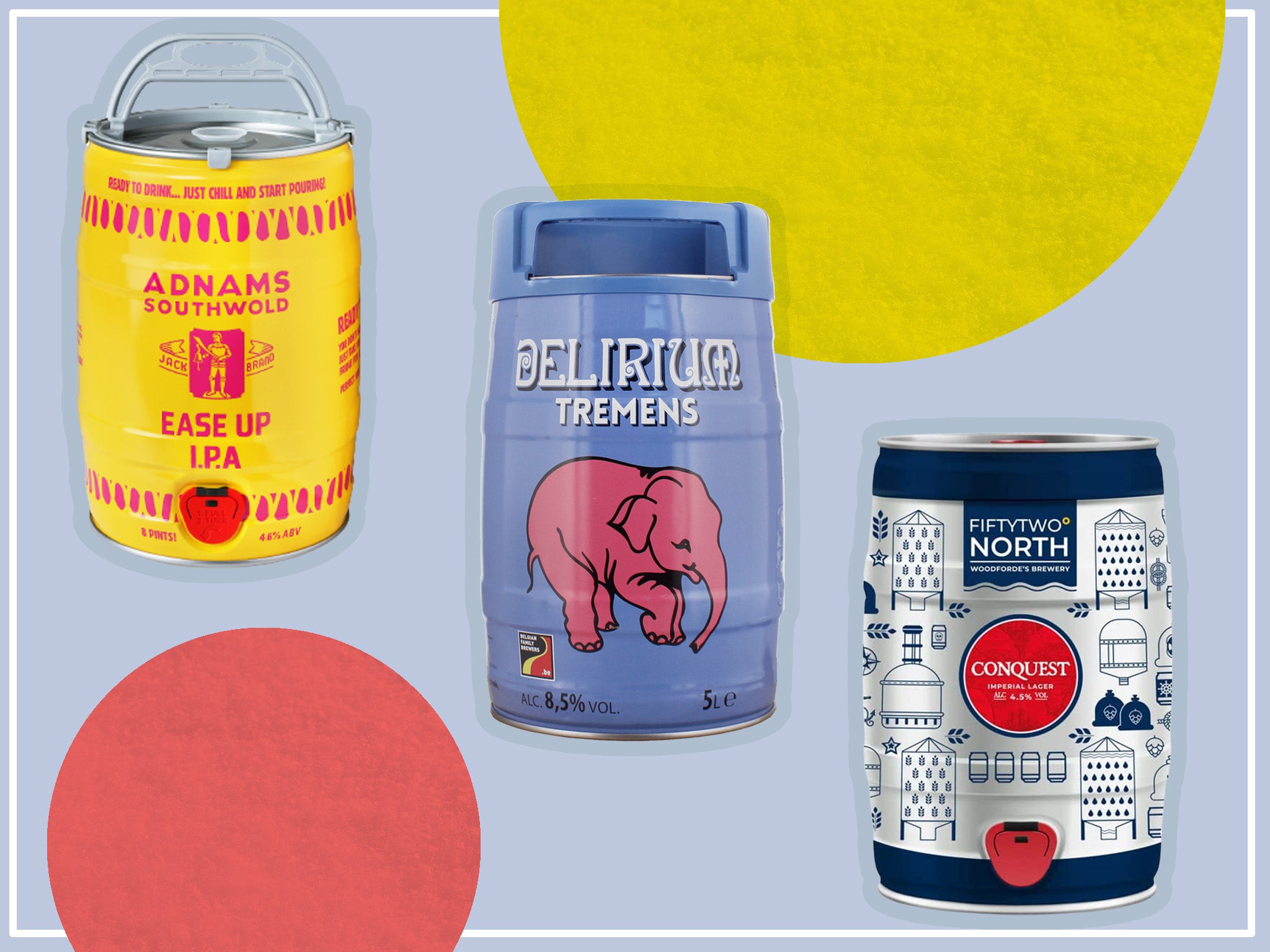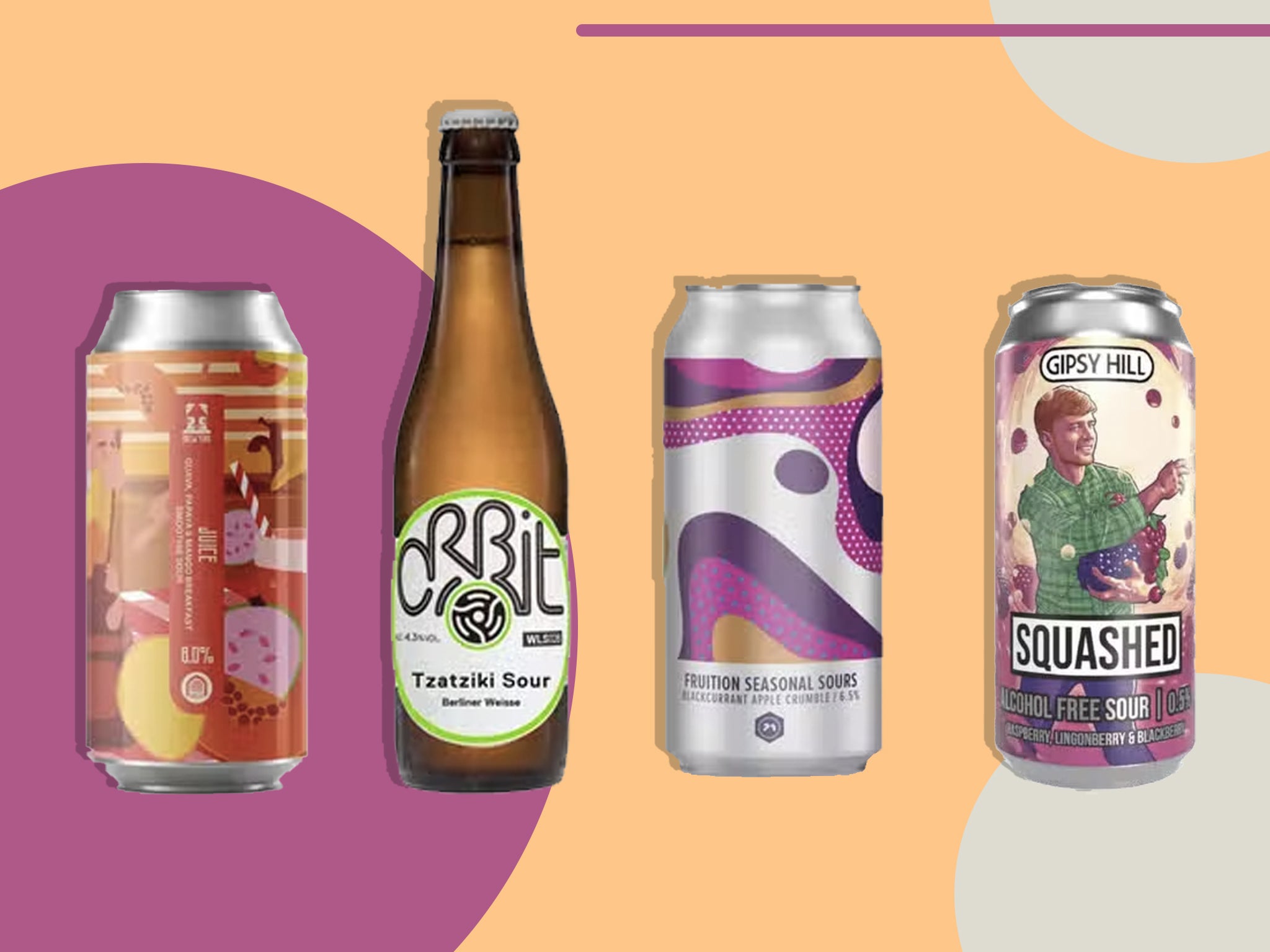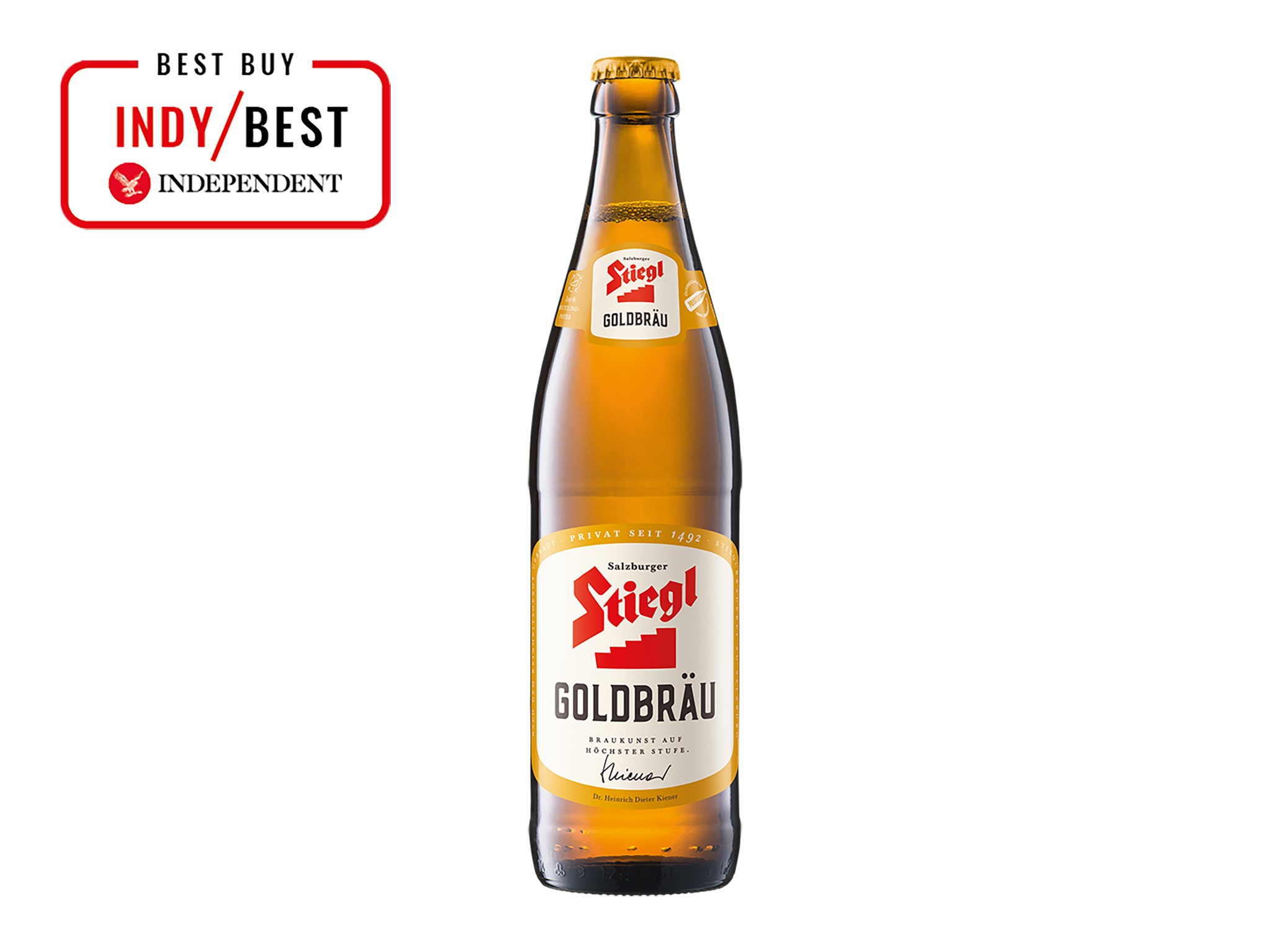
The Independent's journalism is supported by our readers. When you purchase through links on our site, we may earn commission. Why trust us?
8 best European lagers that have made their way across the Channel
From Munich-style helles to Oktoberfest classics, these are the brews to sip
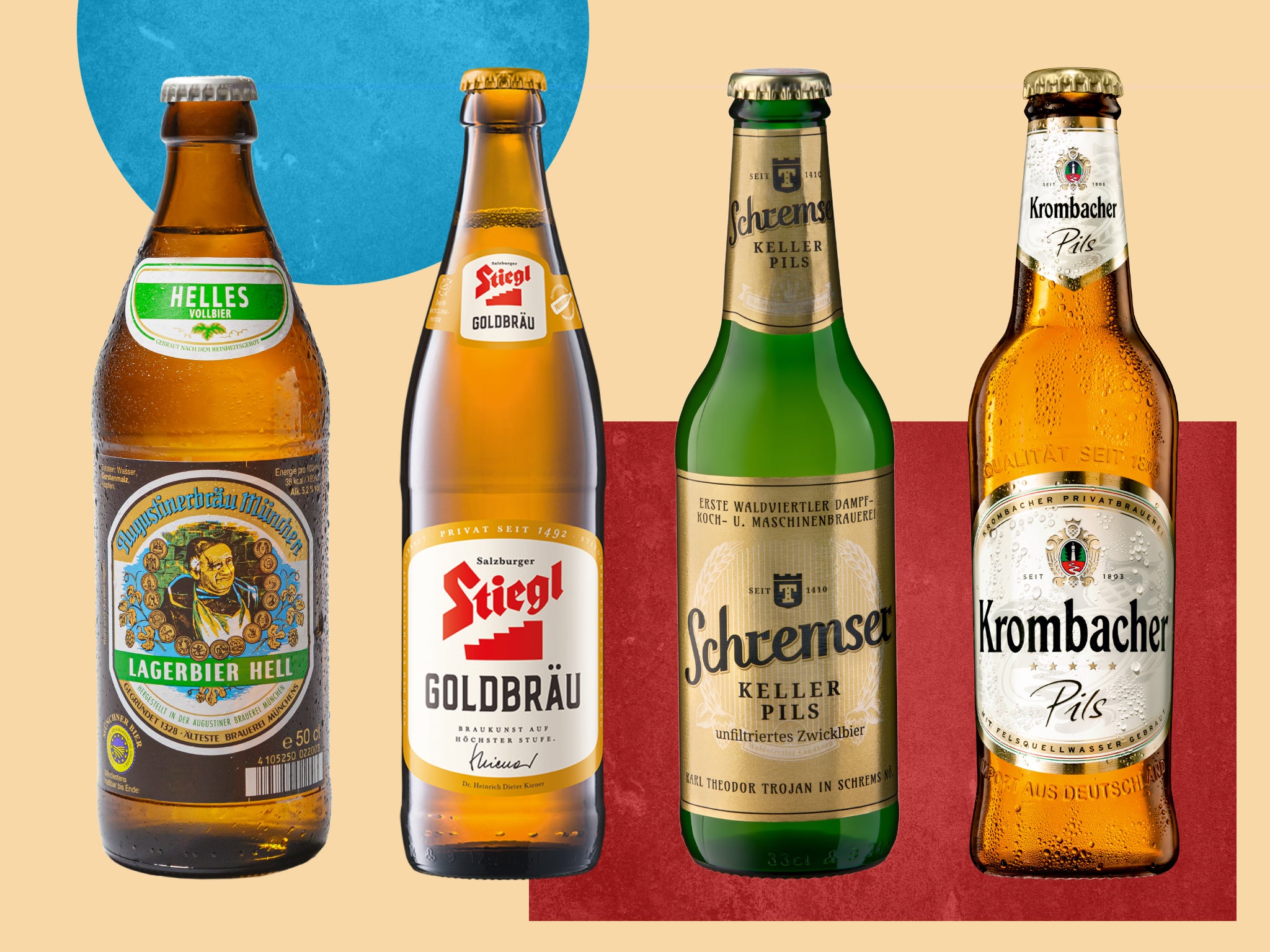
Still the most popular beer choice amongst Brits, lager has been popular for centuries. And while hazy, high ABV India pale ales (IPAs) have been a huge talking point for years, it still remains king when it comes to beer.
Although popular, lager has been tarnished with an unfair reputation over the past few decades – widely associated with “loutish” behaviour, heavily marketed for mass consumption, rather than being respected as the refined drink it is.
Attitudes are slowly changing however, with some of the best options from Europe now far more readily available thanks to distributors specialising in bringing the good stuff to the United Kingdom. All of which are worth trying if you haven’t already: especially if your perception of lager has been dominated by mass-produced, household name options.
Some of the most popular lager styles include light, effervescent pilsners with firm bitterness; pale Munich-style helles lagers with bright flavours and lower bitterness; amber-coloured Vienna lager with caramel notes; Märzen synonymous with Oktoberfest; or dark lagers brewed with dark malts, boasting rich flavour profiles.
This guide to the best European lagers covers many available styles from a collection of continental brewers, reminding us why lager remains so popular after all these years.
How we tested
It’s a fact that certain beers taste better in certain glasses (and we recommend always pouring your beer into a glass to unlock its best possible aroma and taste) so when tasting the various lagers on offer, we made sure to pour the beers into glasses suitably matched to their respective styles.
All were served chilled and poured into the glasses with a decent amount of foam before being blind tasted, on which tasting notes were made and each beer was scored out of 10 based on taste, aroma, finish and quality.
The best European lagers for 2022 are:
- Best overall European lager – Stiegl goldbräu: £2.69, Virginwines.co.uk
- Best kellerbier – Schremser keller pils: £2.33, Virginwines.co.uk
- Best German lager – Augustiner lagerbier hell: £2.99, Beersofeurope.co.uk
- Best pilsner – Hirter privat pils: £3.39, Beersofeurope.co.uk
- Best monastic beer – Andechs andechser hell: £3.50, Beershophq.co.uk
- Best Czech lager – Kutná hora kutnohorská zlatá 12: £3.09, Virginwines.co.uk
- Best supermarket lager – Krombacher pils: £2.20, Tesco.com
- Best Belgium lager – Haacht primus pilsner: £2.22, Pivovarorders.co.uk
Stiegl goldbräu

- Best: Overall
- ABV: 5%
- Size: 50cl
- Style: Bottle
- Country: Austria
Celebrating its 530th anniversary this year, Stiegl Brauerei pours centuries of experience into its beers. The classic Stiegl goldbräu, for instance, is brewed with water from the Untersberg region, hops from upper Austria and barley from lower Austria, with the resulting beer brought to the UK. The result is a glorious Austrian Märzen that’s delicious and full-bodied with unrivalled balance. With a crown of soft foam, Stiegl’s goldbräu has ripe fruit and sweet malt aromas with just a whisper of honey, while malts dominate the palate with a bready savour, light hoppiness and faint bitterness which lingers on the eminently refreshing finish.
Schremser keller pils
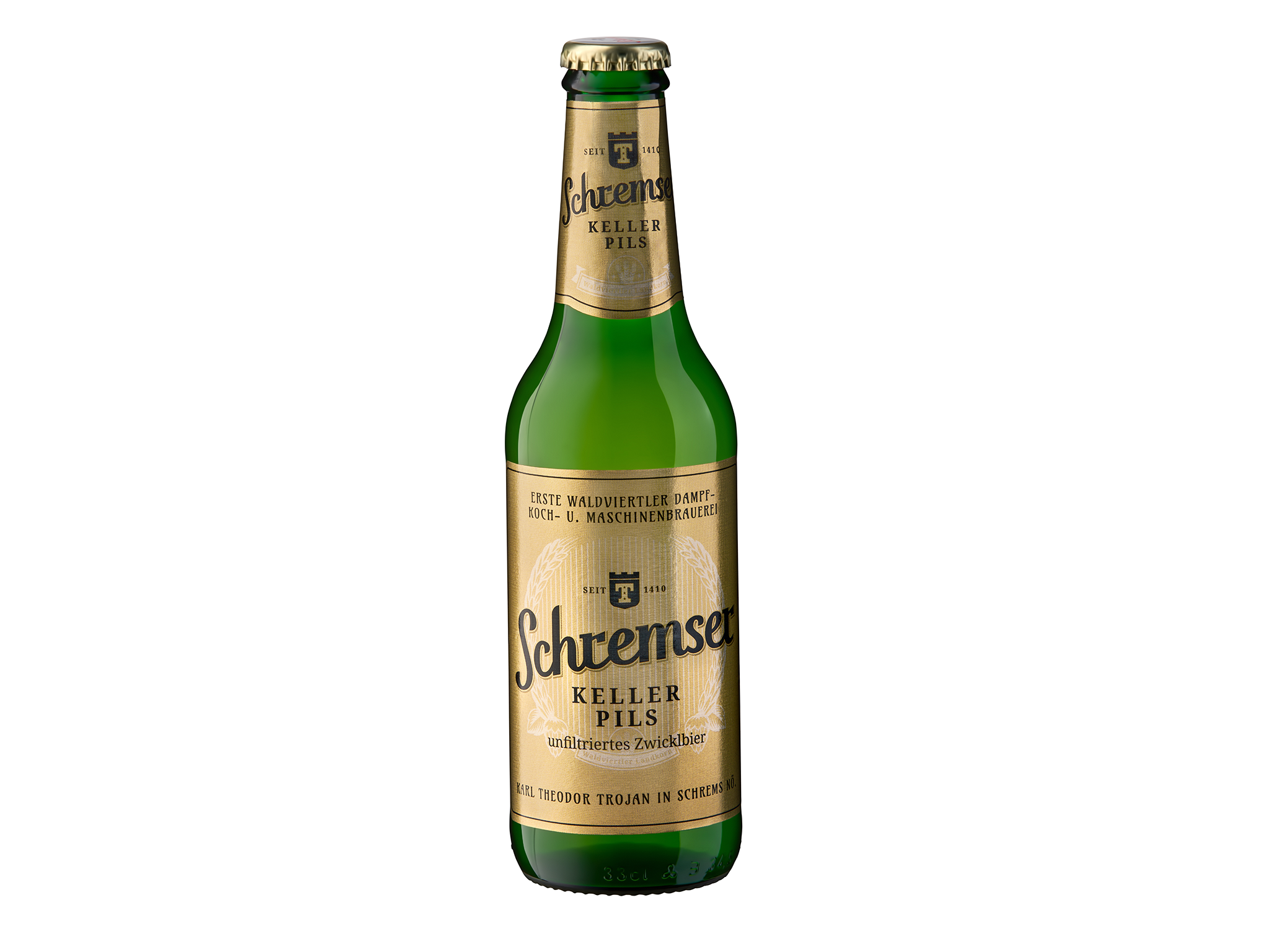
- Best: Kellerbier
- ABV: 4.5%
- Size: 33cl
- Style: Bottle
- Country: Austria
Typically cloudier than classic lagers, Schremser keller pils is a perfect example of a superlative kellerbier. With the yeast unfiltered and remaining in the bottle to provide the cloudiness essential for a beer to be classed as a kellerbier, Schremser keller pils is full-bodied with pronounced maltiness. With its heritage dating back to the 15th century, the family-owned brewery in Schrems, Austria, uses modern technology to produce its beers, with all ingredients locally sourced. An all-natural process is also used. For the Schremser keller pils, aroma hops are joined with light pilsner malts, which are gently mashed and fermented, producing a highly-carbonated beer with honey, floral and floral hops notes alongside some spiciness and a lightly dry finish. Outstanding.
Augustiner lagerbier hell
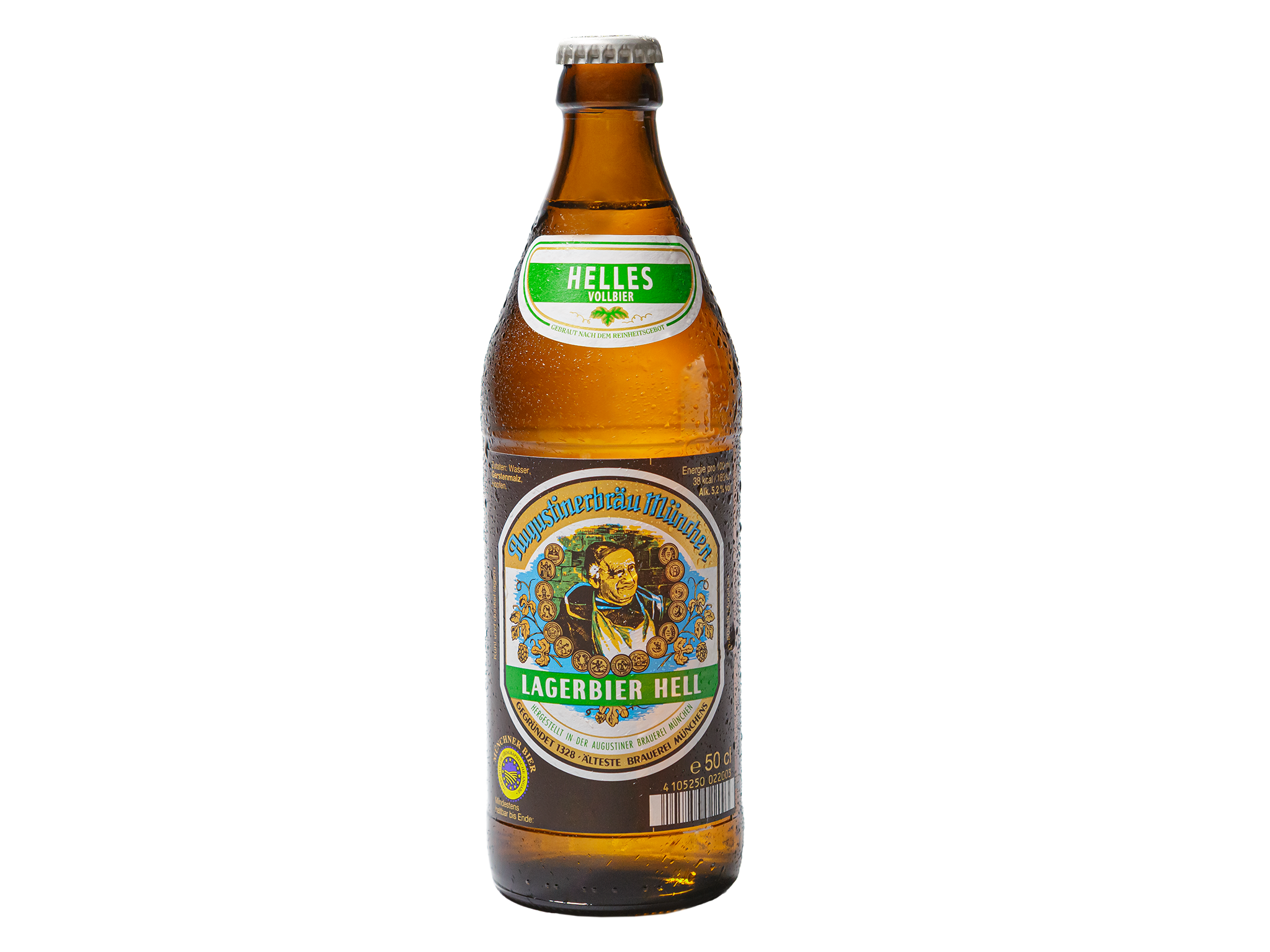
- Best: German lager
- ABV: 5.2%
- Size: 50cl
- Style: Bottle
- Country: Germany
Brewed in Munich, according to the German Purity Law, Augustiner lagerbier hell is an exemplary helles lager. A German pale lager style typically brewed in the south of Germany, helles (or hell) takes its name from the German terms for “bright” or “pale” in English. In addition to being full-bodied, helles lagers are traditionally light in colour, slightly sweet and with low bitterness.
Still enjoyed from wooden barrels at Oktoberfest, Augustiner lagerbier hell is extremely popular, and for good reason. A long secondary fermentation provides a crispy, smooth taste and a light hoppy finish, joining bold aromas of German hops, plus bready notes and light sweetness perfectly balanced with some dry bitterness on the finish.
Hirter privat pils
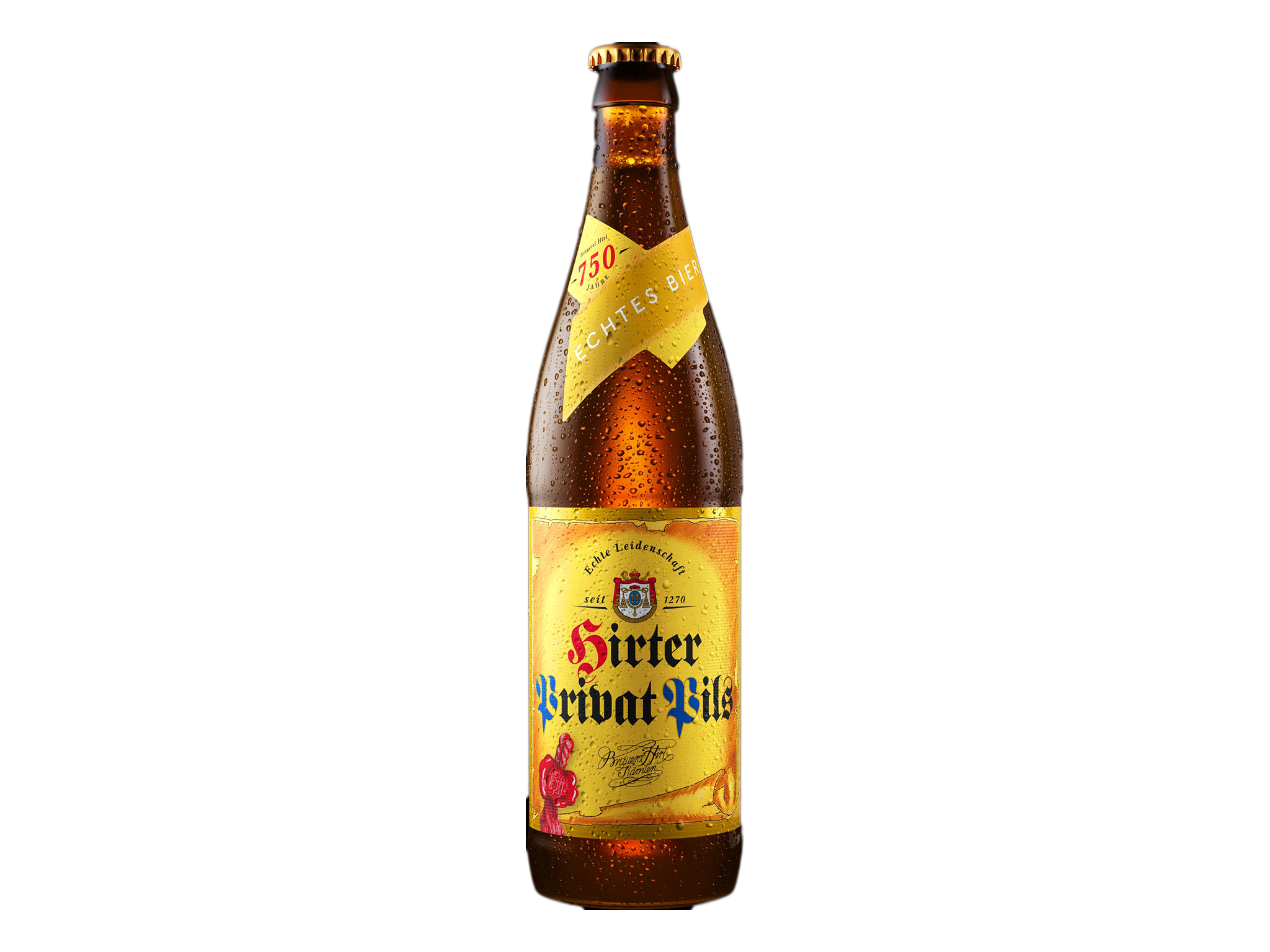
- Best: Pilsner
- ABV: 5.2%
- Size: 50cl
- Style: Bottle
- Country: Austria
A family-owned brewery, Brauerei Hirter has been operating for over 750 years. Brewed according to ancient Bohemian recipes, Hirter privat pils uses soft mountain spring water from the Hanslbauer spring directly opposite the brewery. The beer has a mild carbonic acid structure to ensure optimum flavour and is highly fermented, which results in a naturally slender taste, with the beer carrying some sweet bread notes, light floral hop savours, sweet honey and semi-dry bitterness on the finish. In addition to being an exceptional pilsner, Hirter privat pils is also GMO-free, non-pasteurised and entirely natural.
Andechs andechser hell
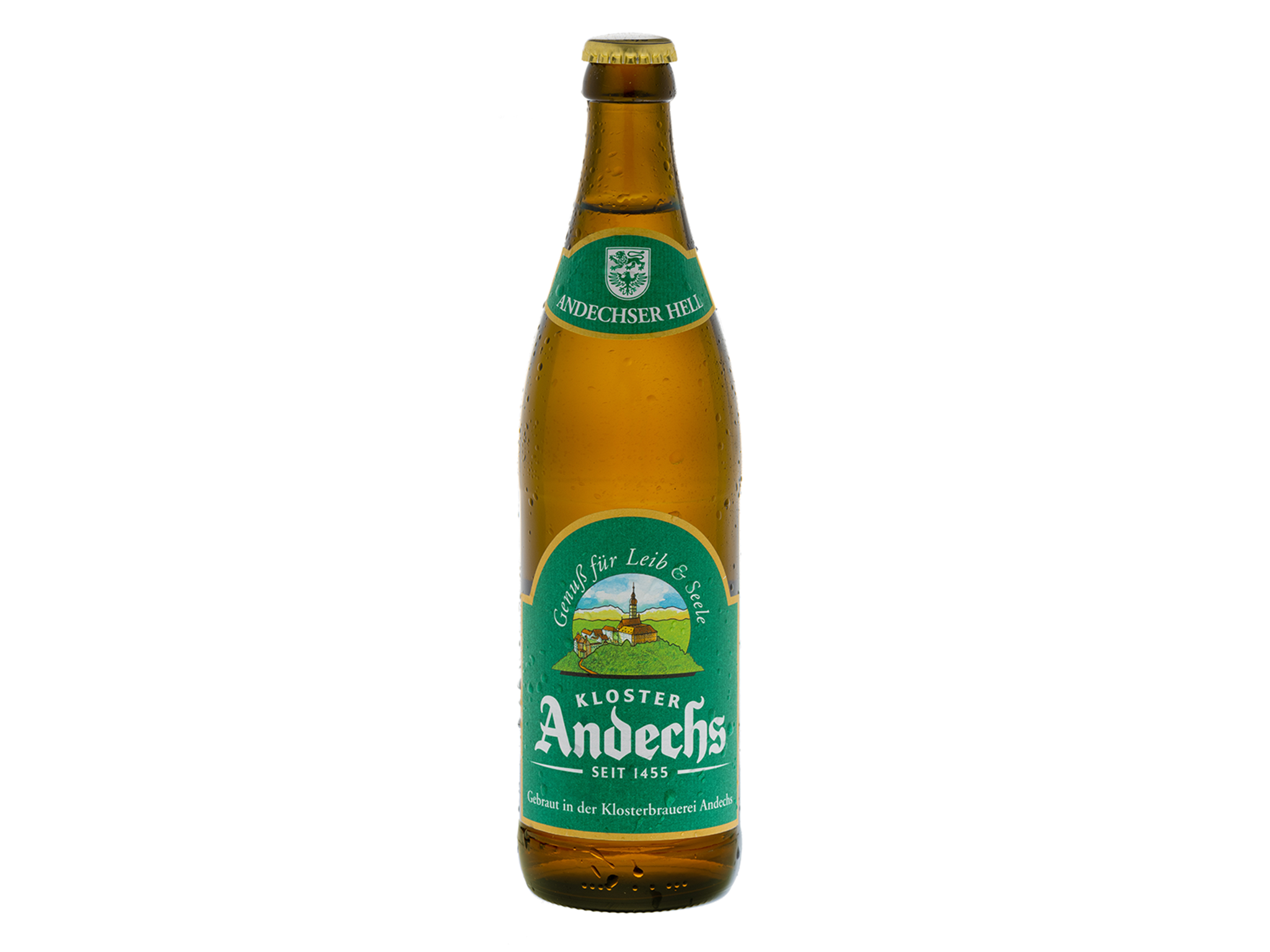
- Best: Monastic beer
- ABV: 4.8%
- Size: 50cl
- Style: Bottle
- Country: Germany
Since 1455, the Andechs monastery brewery has been combining Benedictine brewing tradition with up-to-date technology. While the traditional brewing processes used do take longer than conventional methods, the beers produced define the brewery’s quality philosophy, with only select raw materials used throughout the elaborate brewing process. Brewed with a traditional multiple mashing process, Andechser hell has plenty of lasting foam alongside a soft malty aroma with hints of floral hops. On the palate, Andechser hell is clean and fresh with mild sweetness, balanced by soft hop bitterness on the round finish.
Kutná hora kutnohorská zlatá 12
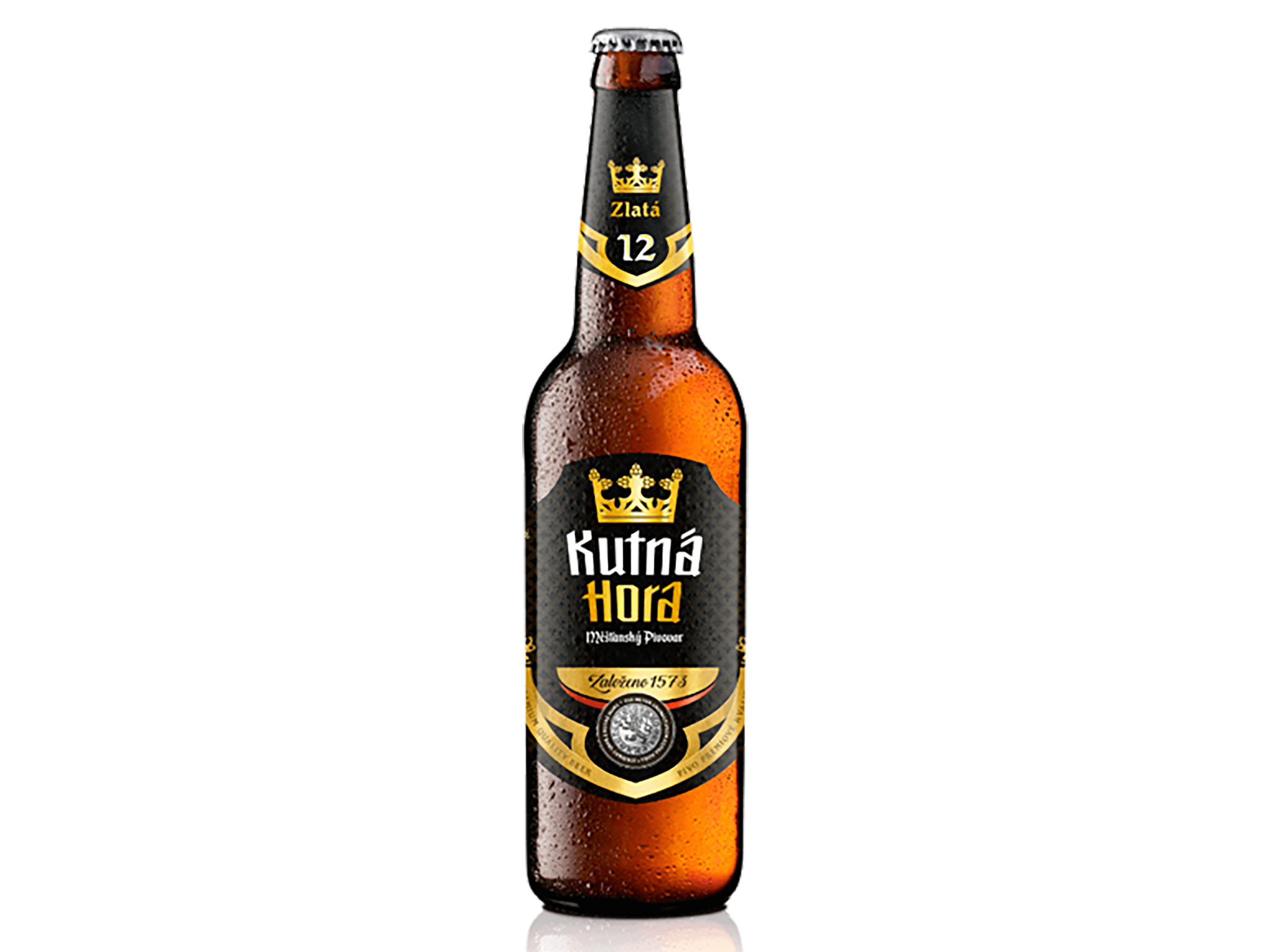
- Best: Czech lager
- ABV: 4.9%
- Size: 50cl
- Style: Bottle
- Country: Czech Republic
Located in the medieval town of Kutná Hora in the central Czech Republic, Kutná Hora brewery began brewing during the 15th century, quickly becoming renowned for its excellent beers. In more recent years, the brewery was bought by Heineken, but soon closed, causing much frustration among beer drinkers and the local community.
Fortunately, a local entrepreneur decided to revive the brewery and restore it to its pre-Heineken glory, with the brewery now in high demand. The Kutná hora 12 is even considered one of the best pilsner type real Bohemian lagers on the market, with its full-bodied flavour and bitterness that’s slightly higher than typical, with pronounced richness and fine balance between bitterness and inviting honeyed sweetness, complete with hoppy grassiness on the finish.
Krombacher pils
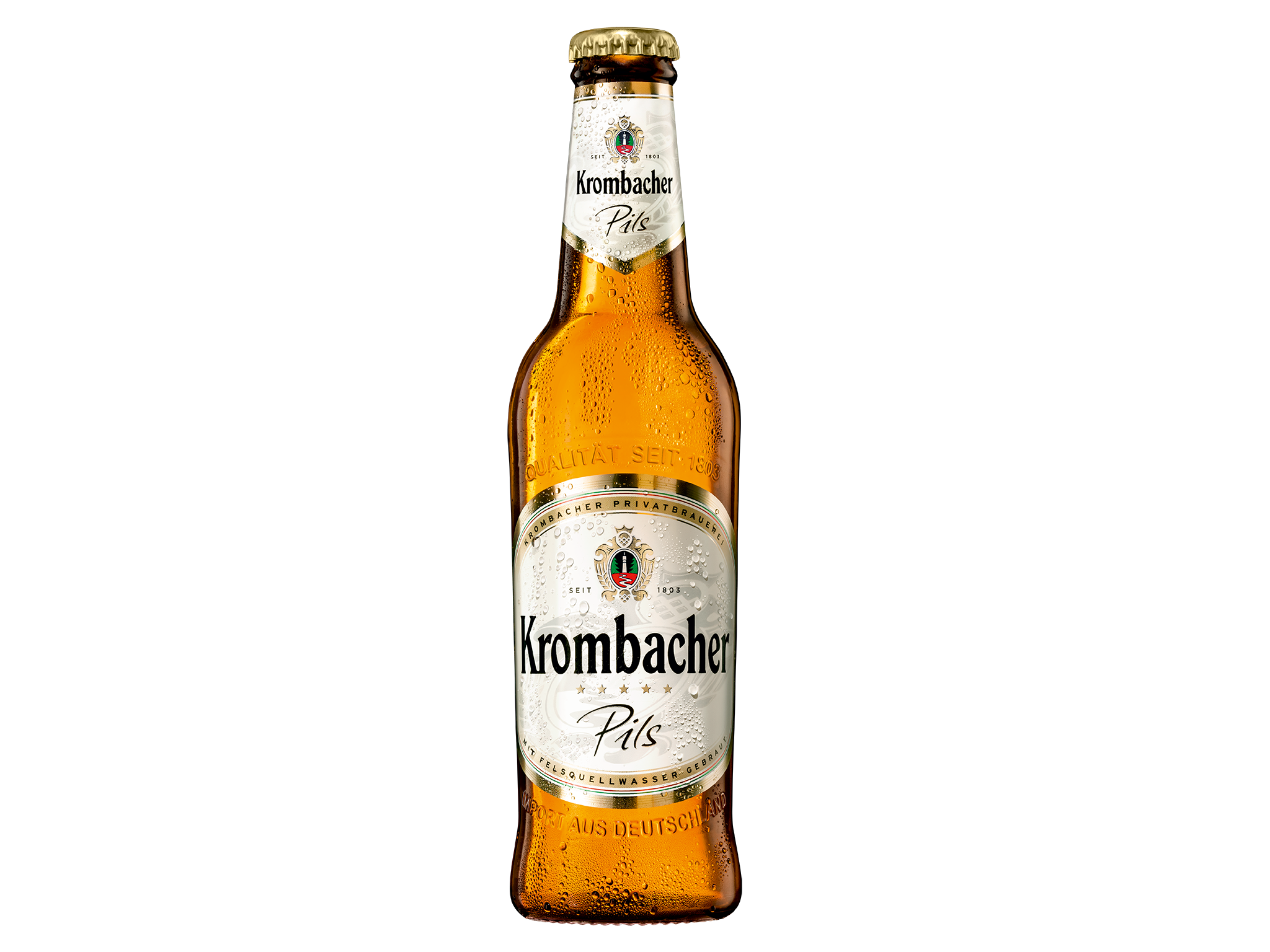
- Best: Supermarket lager
- ABV: 4.8%
- Size: 66cl
- Style: Bottle
- Country: Germany
An independent, family-run brewery with a deep respect for nature, Krombacher has been producing its beers exclusively in the small town of Krombach, central Germany, since 1803. To make the company’s beer, which adheres to the German Beer Purity Law of 1516, Krombacher employs 55 master brewers who combine time-consuming traditional methods with state-of-the-art technology. The finest two-row summer barley is combined with Siegel hops from Hallertau and the brewery’s own specially cultivated Krombacher pilsner superioris yeast used in one brew only. Local Felsquellwasser water is also sourced from within three kilometres of the brewery. Fruity hop aromas give way to a balanced malt backbone, complete with a crisp, clean finish with a light bitterness that lingers.
Haacht primus pilsner
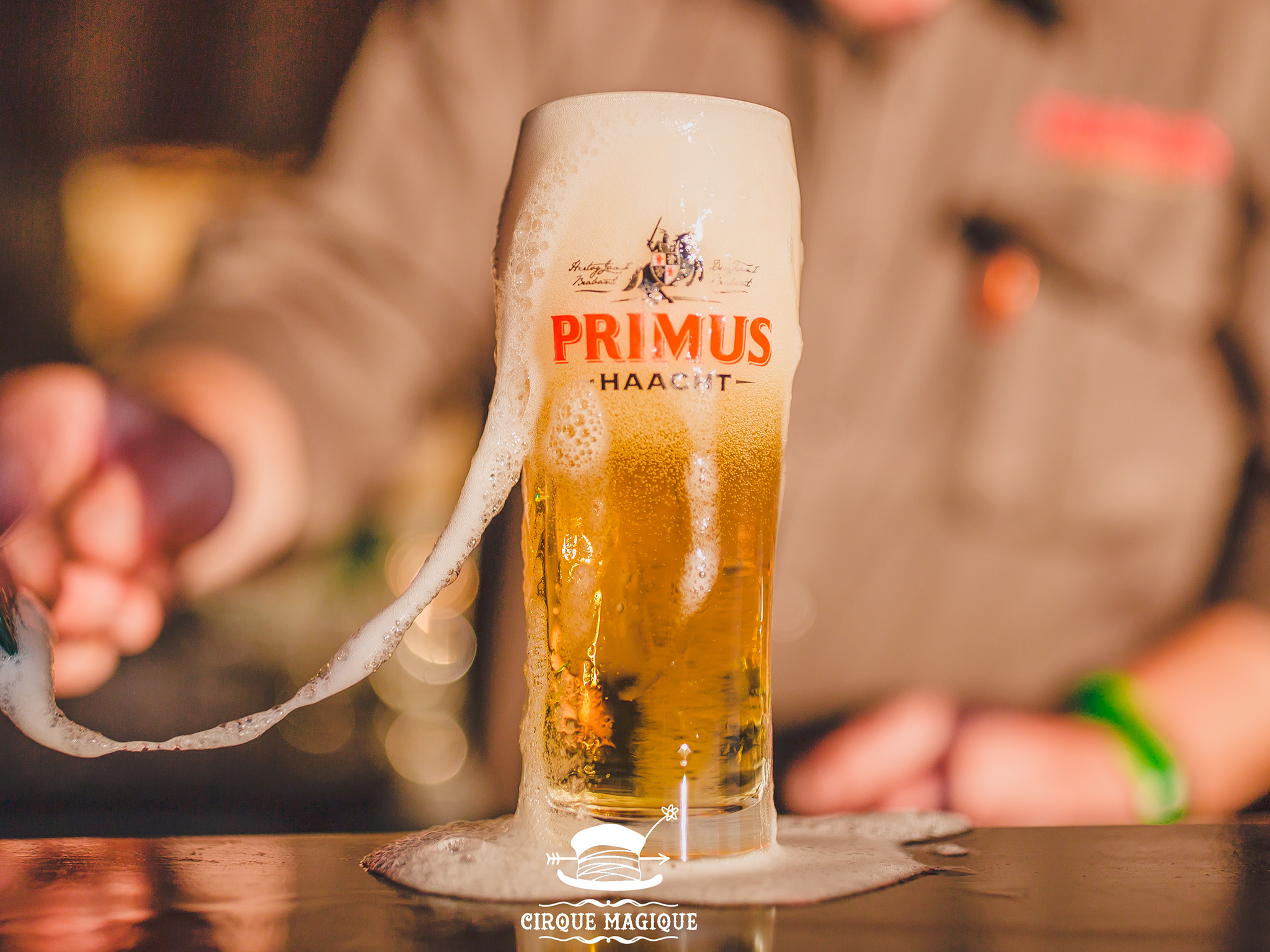
- Best: Belgium lager
- ABV: 5.2%
- Size: 33cl
- Style: Bottle
- Country: Belgium
A family-run brewery in the Flanders region of Belgium, Haacht has been brewing since 1898. Now available in the UK, Haacht’s signature beer, primus pilsner, is still brewed to the exact same recipe as the original created in 1924, maintaining its original taste and authenticity. With a golden complexion, Haacht primus pilsner has grassy hop and lager yeast aromas, with a characteristic pilsner bready flavour and mild hop bitterness rounded by a pleasant sweet note. On the finish, the beer is dry, lightly bitter and thirst-quenching.
The verdict: European lagers
While the wide variety of different lager styles did make it difficult to choose just one best buy, Stiegl goldbräu is a particular standout. It’s less readily available than some of the other beers on the list, but can be purchased from a number of online stockists and specialist bottle shops for a few quid. Trust us, it’s a million miles away from the unexciting mass-produced lagers which dominate the market and it’s absolutely worth ordering a few bottles to taste at home.
Love a tipple but hate the hangover? Check out our pick of the best alcohol-free beers that are as good as the real deal
Voucher Codes







